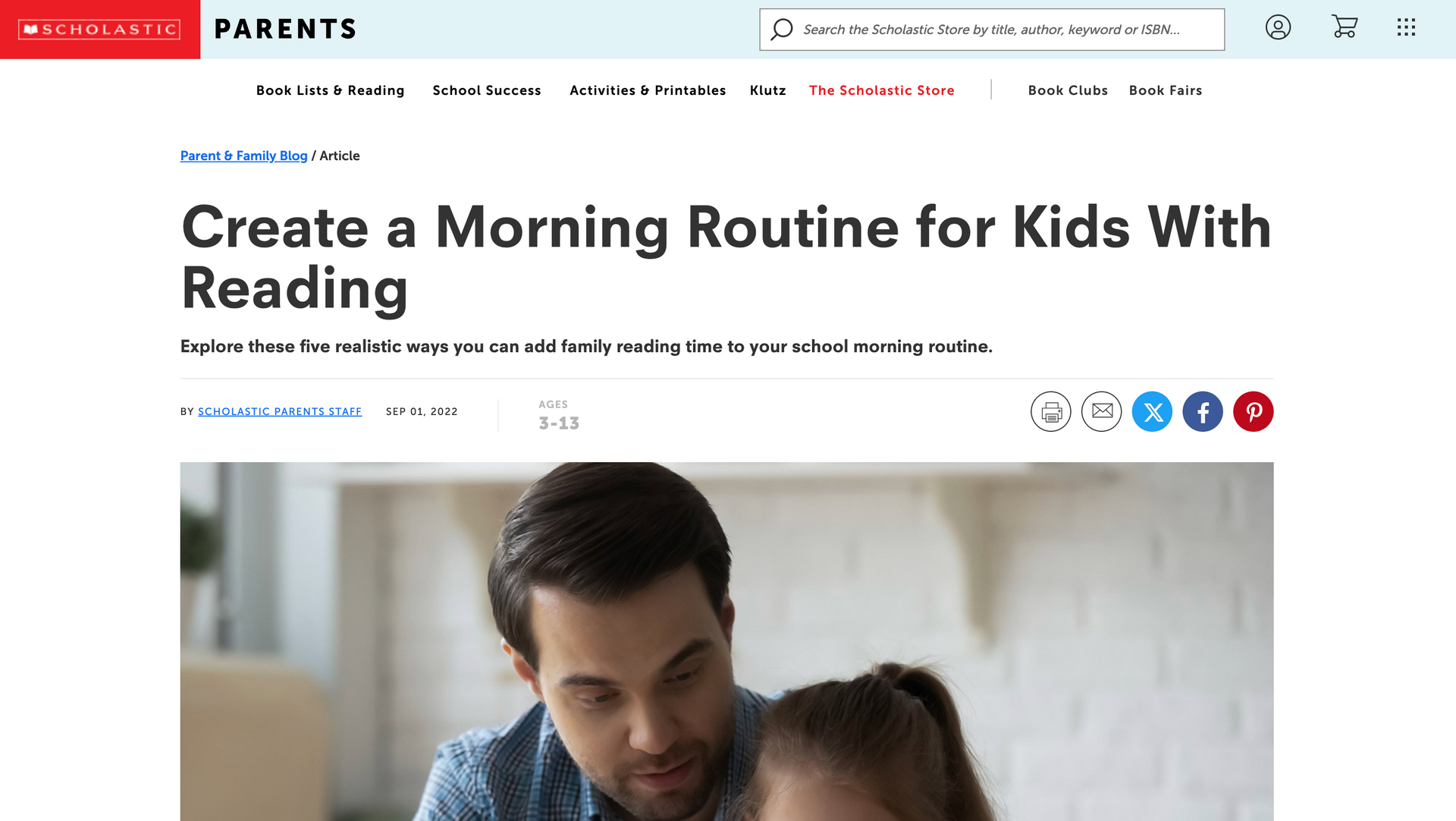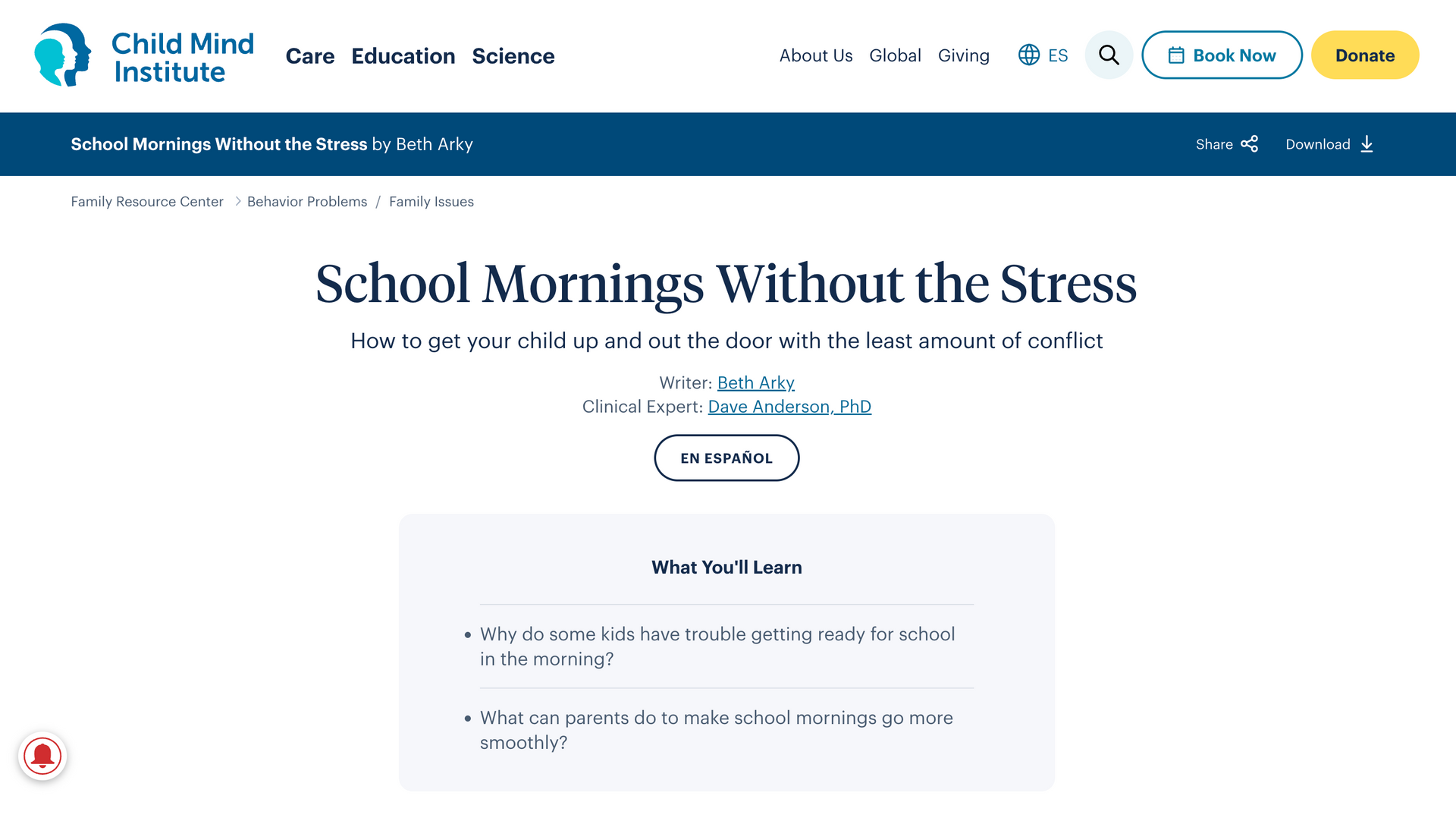Making Mornings Easier: Building Calm and Productive Routines
For many families, mornings can feel like a race against the clock. Between getting kids dressed, preparing breakfast, finding missing shoes, and getting everyone out the door on time, it’s easy for the day to start with tension instead of calm. But with a little planning and consistency, mornings can become one of the most peaceful and productive parts of the day.
Caregivers can help children begin each day feeling grounded, confident, and ready to learn by creating routines that promote independence, reduce last-minute chaos, and build positive habits. A calm morning routine doesn’t just save time, it supports emotional regulation, organization, and a smoother transition into the day ahead.
1. Prepare the Night Before
A smooth morning begins the night before. Encourage children to take part in preparing for the next day by choosing clothes, packing backpacks, and setting out supplies for activities or homework. Even a few minutes of preparation can prevent last-minute stress and decision fatigue in the morning.
Making this part of your evening routine is simple but powerful. After brushing teeth and reading together, spend five minutes reviewing what’s needed for tomorrow. Talk through the day ahead: “You have gym tomorrow, so don’t forget sneakers.” This helps children learn time management and responsibility in a low-pressure way.
It also gives caregivers a chance to identify potential challenges early, like a missing permission slip or a late-night snack request — so they can be handled calmly rather than in a morning rush.
2. Keep Mornings Predictable
Children thrive on structure, and a consistent morning routine gives them a sense of stability. Post a simple checklist somewhere visible. Get dressed, eat breakfast, brush teeth, pack bags; so kids can see what needs to be done without repeated reminders. For younger children, visual charts with pictures work even better.
Predictability builds confidence. When children know what comes next, transitions happen more smoothly and resistance decreases. A routine also gives mornings a natural rhythm, helping both caregivers and kids stay focused and calm.
If your mornings often feel hectic, look for one or two small changes that can create order. Maybe that’s waking up at the same time each day or always starting breakfast right after getting dressed. Consistency, not perfection, is what keeps mornings running smoothly.
3. Wake Up a Little Earlier (and Calmer)
It’s tempting to hit the snooze button, but waking up just 10 or 15 minutes earlier can completely change the tone of the morning. That short buffer gives everyone time to move at a slower pace; to stretch, chat, and eat without feeling rushed.
For children, rushing can heighten stress and make transitions harder. When mornings start peacefully, kids are more likely to cooperate and move through their routine willingly.
Caregivers can set the tone by waking up first, taking a few deep breaths, and approaching the day calmly. Soft lighting, gentle music, or a few quiet moments together at breakfast can make a big difference. Children often mirror the energy of the adults around them, so when caregivers lead with calm, kids tend to follow.
4. Encourage Independence in Small Steps
Morning routines are a great opportunity for children to practice responsibility. Start by giving small, age-appropriate tasks they can handle on their own. Younger children might put dirty clothes in the hamper or pour their own cereal, while older kids can make their bed, pack lunches, or double-check their homework.
Encouraging independence helps mornings feel less like a list of demands and more like teamwork. Instead of giving orders, guide them with supportive questions: “What’s left on your list?” or “What do we need to do next before we head out?” This approach builds accountability and decision-making skills.
It also shows children that you trust them. When they feel capable, they’re more likely to take ownership of their responsibilities and feel proud of contributing to a smooth morning.
5. Simplify Breakfast
Breakfast doesn’t need to be elaborate to be nutritious. Having a few easy options ready prevents indecision and delays. Keep staples like fruit, yogurt, oatmeal, and whole-grain toast on hand for quick preparation.
Batch-prepping breakfast items over the weekend can also save time. Such as overnight oats or pre-made breakfast sandwiches that can be reheated quickly. If mornings tend to be chaotic, having a grab-and-go option can keep everyone on track.
You can also make breakfast preparation part of the routine itself. Let children help choose or prepare their meal. Even small tasks like slicing fruit or setting the table build engagement and self-sufficiency.
6. Create Positive Morning Moments
It’s easy for mornings to feel purely task-driven, but including a small moment of connection can change that completely. Try building in a brief family ritual such as sharing something you’re grateful for, playing soft music, or giving a quick hug before heading out the door.
These moments remind children that mornings are not just about checking boxes; they’re about starting the day feeling supported and connected. A child who leaves home feeling loved and encouraged is more likely to have a positive, confident day.
You can even make this routine part of your child’s motivation. “Once we finish everything on our checklist, we’ll have a few minutes to listen to your favorite song before school.” This creates a positive association with staying on track.
7. Accept That Not Every Morning Will Be Perfect
Even with preparation and structure, some mornings will still feel chaotic. A spilled drink, a missing shoe, or an unexpected meltdown can happen to anyone. The key is not to let those moments define the entire day. Take a breath, reset, and remind yourself — and your child — that it’s okay to start over.
When things don’t go smoothly, focus on small improvements instead of perfection. Every family has its rhythm, and over time, your morning routine will evolve to fit yours.
Children also learn from how caregivers handle stress. Showing patience, humor, or flexibility in the face of small frustrations teaches them emotional resilience and problem-solving in real time.
Building a Calmer Start to the Day
Calm, structured mornings help children feel secure, confident, and ready to take on the day. For caregivers, that same structure brings peace and predictability to what can otherwise feel like chaos.
By preparing ahead, simplifying routines, and encouraging independence, mornings can shift from stressful to steady. The goal isn’t perfection, it’s progress. With a few intentional habits, you can turn mornings into a moment of connection, growth, and calm for the entire family.
Looking for more simple, supportive tools for the loved ones in your care? Enjoy these additional resources and explore our blog for ideas that help you nurture connection, one moment at a time. Or, Join our mailing list where we share more resources that accompany our blog posts.
Join Our Mailing List












